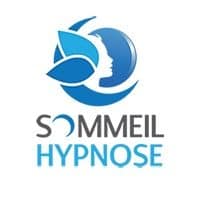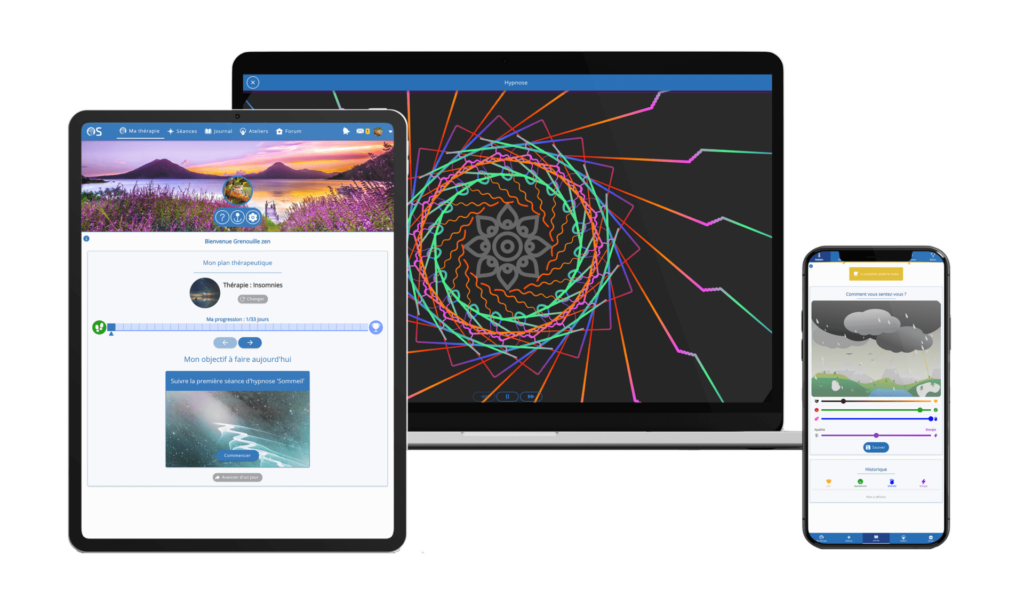Hypnosis: what does science have to say?
Hypnosis as a way out of depression
A 2007 study measured the effectiveness of thetherapeutic hypnosis to reduce depressive symptoms and compared these results with a well-known psychotherapy: "cognitive-behavioural therapy" or CBT.
84 patients suffering from depression were divided into two groups: the first was treated with hypnotherapy, the second with CBT psychotherapy. After twelve weeks of treatment, depressive symptoms reported by patients treated with CBT psychotherapy had decreased by an average of 30%. For patients treated with hypnotherapy, depressive symptoms had decreased by an average of 43%.
After 64 weeks of therapy, or sixteen months, measured depressive symptoms had decreased by an average of 57% for CBT and 63% for hypnotherapy.
Alladin A, Alibhai A. Cognitive hypnotherapy for depression: an empirical investigation. Int J Clin Exp Hypn. 2007 Apr;55(2):147-66. doi: 10.1080/00207140601177897. PMID: 17365072.
Hypnosis to reduce phobias
A 1993 meta-analysis compiling various earlier scientific studies on the use of hypnosis to treat phobias concluded that, after one year of treatment, over 80% of patients had experienced a significant reduction in their phobias.
Crawford, Helen & Barabasz, Arreed (1993). Phobias and intense fears: Facilitating their treatment with hypnosis. 10.1037/10274-015.
Hypnosis to improve sleep
A 2017 meta-analysis, compiling 24 previous scientific studies and over 190 scientific publications, came to the conclusion that hypnosis had a positive outcome rate of 58.3% on the improvement of sleep disorders (insomnia, night terrors, nightmares ...). In summary, 58.3% of patients undergoing hypnosis treatment for sleep disorders reported a marked improvement at the end of their program. 12.5% of patients-e-s reported small improvements. Finally, for 29.2% of patients-e-s, hypnosis has had no convincing therapeutic results.
Chamine I, Atchley R, Oken BS. Hypnosis Intervention Effects on Sleep Outcomes: A Systematic Review. J Clin Sleep Med. 2018 Feb 15;14(2):271-283. doi: 10.5664/jcsm.6952. PMID: 29198290; PMCID: PMC5786848.
Hypnosis to reduce anxiety, stress and fatigue.
In a study published in 2013, researchers analyzed the impact of hypnosis on anxiety, stress and fatigue in 39 patients.
This 15-day study showed that anxiety and stress levels were reduced by a factor of around 20%. The impression of daily fatigue was also reduced,
Untas, Aurelie & Chauveau, Philippe & Dupré-Goudable, Catherine & Labadens, Anne & Lakdja, Fabrice & Cazenave, Nicolas (2013). The Effects of Hypnosis on Anxiety, Depression, Fatigue, and Sleepiness in People Undergoing Hemodialysis: A Clinical Report. The International journal of clinical and experimental hypnosis. 61. 475-83. 10.1080/00207144.2013.810485.
The impact of hypnosis on the immune system
According to a 2002 study, hypnosis has a stimulating effect on the immune system, with the white blood cell count (lymphocytes - immune system cells) rising from 35% to 45% after six weeks of hypnosis.
The increase in this rate is linked to the drop in cortisol (stress hormone) levels.
J.H. Gruzelier (2002) A Review of the Impact of Hypnosis, Relaxation, Guided Imagery and Individual Differences on Aspects of Immunity and Health, Stress, 5:2, 147-163, DOI: 10.1080/10253890290027877
Hypnosis to treat tobacco addiction
In a randomized study involving 286 smokers following a hypnosis program, 20% of them succeeded in quitting smoking (cessation of more than twelve months). In a parallel control group using nicotine patches and receiving psychological follow-up, only 14% managed to quit smoking (cessation of more than twelve months).
Timothy P. Carmody, Carol Duncan, Joel A. Simon, Sharon Solkowitz, Joy Huggins, Sharon Lee, Kevin Delucchi, Hypnosis for Smoking Cessation: A Randomized Trial, Nicotine & Tobacco Research, Volume 10, Issue 5, May 2008, Pages 811-818


















